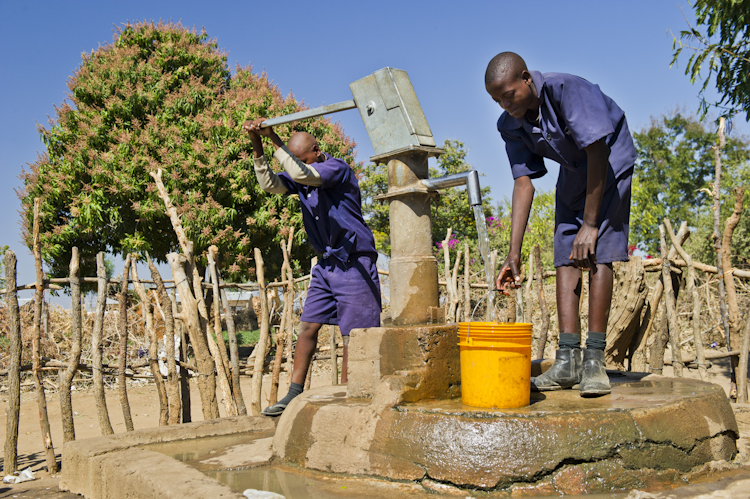World Water Day 2013: Making Cooperation and Integration Key Priorities for Development Policy
|

This past Friday was World Water Day and an opportunity to celebrate the excellent work being doing to promote water, sanitation and hygiene (WASH) in the developing world. The UK has played a leading role in making WASH a priority for international development funding and the Government's commitment to doubling the number of people reached by WASH by 2015 sets an ambitious target for us, and other developed nations, to follow.
While much progress is undoubtedly being made, great inequality of access still remains with too many communities reliant on unclean water and inadequate sanitation facilities, whilst simultaneously employing poor hygiene practices. One of the biggest concerns about this inequality is the prevalence of diarrhoeal disease. This is of particular concern in Africa and Asia, where eighty percent of diarrhoea related child deaths occur. Staggeringly, around 80 children die every hour from diarrhoeal disease, making it the second largest killer of children under five worldwide, after pneumonia, and the most common cause of childhood illness. It is worth reflecting that in Britain we consider the condition little more than inconvenient.
Effective methods to both prevent and treat diarrhoeal disease exist and are being rolled out across the developing world. Improving access to WASH is a vital stage in this process. However we must also utilise all available tools to prevent and treat the condition, including vaccines, antibiotics, oral rehydration therapy (ORT), exclusive breastfeeding and zinc and other micronutrients. UNICEF estimates that combining all of these into one single package of care would cut deaths due to diarrhoea by around 60 percent.
This strategy of integrating care is gaining significant momentum in the development community, particularly in light of constrained public finances. In the vaccines sector, we are already seeing the benefits of integration in vaccine effectiveness and delivery. Vaccines are far less effective in environments where WASH access is poor and infrastructure development is becoming a key part of vaccine roll-out. Without adequate cold chain storage facilities and serviceable roads, it is extremely difficult to ensure that effective vaccines against a number of preventable diseases reach children in rural areas.
As Co-chair of the All Party Group for Child Health and Vaccine Preventable Diseases, I have met with a number of the leading organisations in the WASH sector to establish how integrated packages of care can work on the ground. The theme for this year's World Water Day is Water Cooperation and we continue to support our partners at WaterAid, Tearfund and PATH in calling on the Government to make cooperation and integration key priorities for future development policy. By working together and joining up our efforts, we can significantly reduce diarrhoeal disease, and other preventable conditions, and make substantial progress on attaining our Millennium Development Goal targets for improving child and maternal health.
-- Lord Avebury, Co-Chair of the UK's All Party Parliamentary Group for Child Health and Vaccine Preventable Diseases
Photo credit: Gareth Bentley/PATH.














